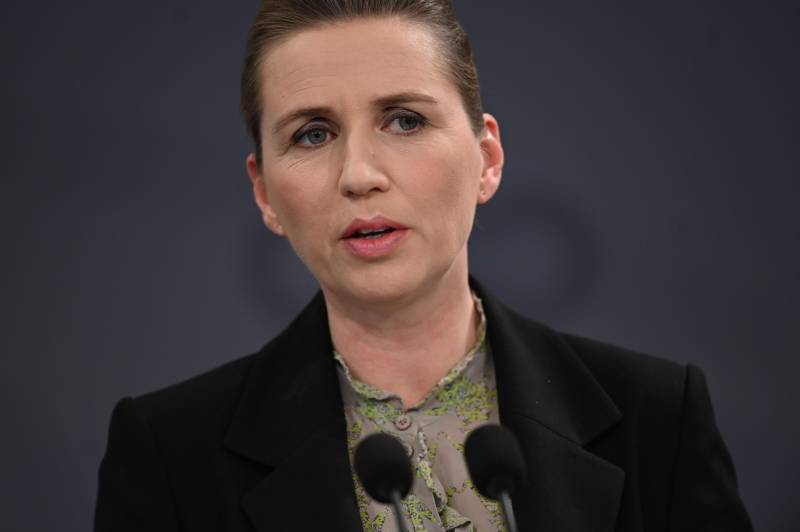Denmark dishes out salaries to virus-hit companies

Stay tuned with 24 News HD Android App

Denmark has always prided itself on its "flexicurity" model that marries the free market with a welfare society, but in the face of the COVID-19 pandemic, it has chosen another strategy.
The northern European country had long been looked at for how it found a socially acceptable solution to the curse of free market economies: unemployment.
Under Denmark's flexicurity model, employers have been given free rein to hire and fire workers, letting businesses adapt to the ups, downs and shifts in markets.
Those who found themselves out of work could rely on generous unemployment benefits combined with plentiful retraining programmes to get the skills needed to land a new job.
Even during the global financial crisis in 2008, Denmark stuck with its flexicurity model.
But the coronavirus crisis is not one of adapting to market changes. Denmark, like many other countries, ordered many businesses to shut down to stem the spread of COVID-19.
With so much of the economy halted on its orders, the centre-left government has taken a different path.
- 'Keep on your employees' -
Like several other European countries, it chose to effectively fork over money to companies to pay the wages of their staff.
"It is important for me here today to send a signal to companies: Keep on your employees," Prime Minister Mette Frederiksen said in one of her major public statements as the government sought to develop measures to deal with the health and economic impact of the pandemic.
"The unions and government have agreed to strengthen the temporary system of wage compensation. Together, we will support Danish jobs."
To encourage firms to not let go their employees, the government is compensating firms for 75 percent of wages of up to 4,000 euros per month ($4,347).
For those on temporary hourly contracts, the state will pay 90 percent.
One business which has taken up the state's offer is electrician Hornbaek El-forretning, in the city of Randers in western Denmark.
"We want to make sure that we would keep all our employees, as they are all needed," Lene Tind, who runs the company, told AFP.
Hornbaek El-forretning, like many firms, is paying the rest so their employees don't lose any income.
The firm was quickly affected by the measures meant to slow the spread of the coronavirus.
"The first sign of the shutdown was that we were not allowed in nursing homes with old and weak people," Tind explained. "Also in some companies and at some private households, they wanted to wait with projects," she added.
Thanks to the programme, nine of 27 employees were furloughed, but Tind expects to call them back to work as Denmark gradually loosens its confinement restrictions from April 15.
- Unemployment still rising -
Around 20,000 companies have already applied for the programme, which will remain in place until June 9.
This is the first time Denmark has introduced measures like this to make sure employees stay on the job.
Thomas Bredgaard, a professor of economics at Aalborg University, said the magnitude of the coronavirus crisis required a different response. "This crisis is much worse than the financial crisis, and the government had to avoid mass dismissals," he said.
Before the crisis, the country was near to full employment with an unemployment rate of 3.7 percent, the lowest in over a decade. But even with the programme in place, Denmark, like many other countries, is still seeing a spike in unemployment.
Since the introduction of the country's containment measures in mid-March, twice the usual number of people are registering for unemployment every day, according to the Ministry of Employment.
The Confederation of Danish Industry already estimates that there are about 10,000 more unemployed in the country than at the height of the financial crisis.
For some like Liv Mikkelsen, a part-time chef at a popular restaurant in Copenhagen, the benefits wouldn't be enough.
"It means not working at all and, with what I would have received, I wouldn't have had enough to live on," she said.
So instead Mikkelsen is collecting unemployment benefits, after having used up the little vacation time she had.
- Solid finances -
A member of the European Union, but not the euro, Denmark can afford the interventionist approach thanks to its deep coffers.
"The Danish economy was very robust before the crisis. Unemployment was at a record low and there was a budget surplus," Bredgaard noted.
The government has put together several other lifelines for businesses, including covering fixed costs such as rent for small businesses.
However, if the crisis keeps going through May-June, the impact on the economy will be severe.
Denmark's central bank has said it expects GDP to contract between three and 10 percent.
